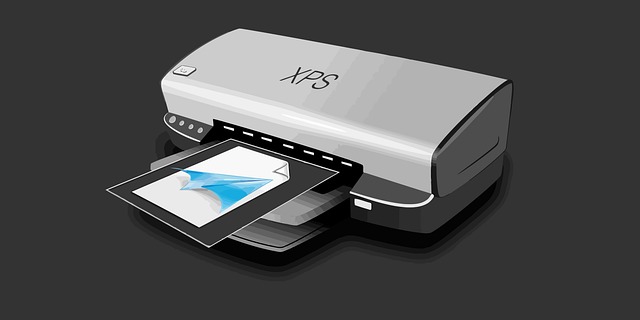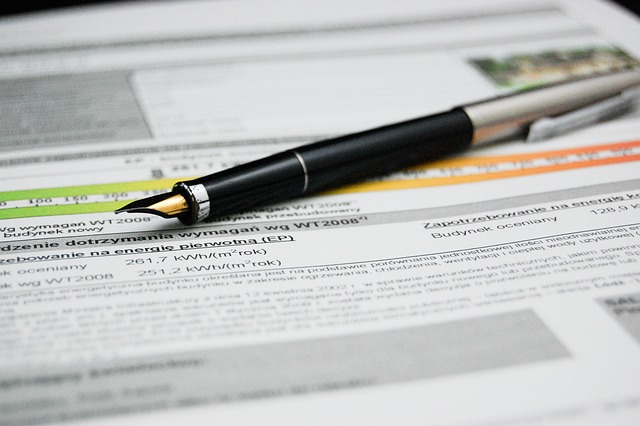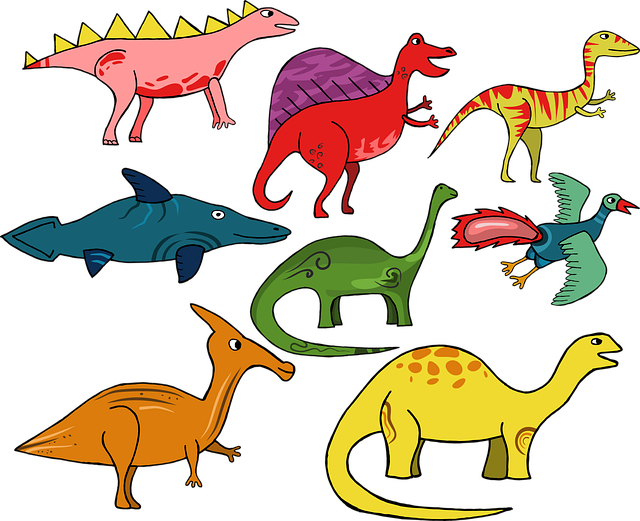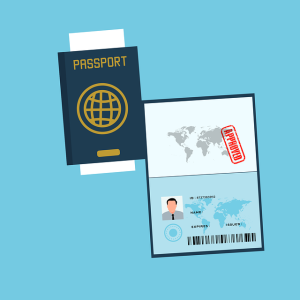Translation services for UK Research and Development (R&D) documents are critical in ensuring that scientific discoveries and innovations can be understood and utilized by a global audience. These specialized translation services employ both skilled human translators with expertise in the relevant fields and advanced technology to accurately convey complex scientific concepts and terminology. By overcoming language barriers, UK R&D organizations can effectively communicate with international collaborators, regulatory bodies, and investors, thus expanding their reach and impact while maintaining compliance with regional standards and regulations. This streamlined communication process not only facilitates the dissemination of research findings but also supports the growth and success of UK-based R&D initiatives on an international scale.
Navigating the intricate world of UK Research and Development (R&D) requires meticulous adherence to local standards, particularly in documentation. This article delves into the critical aspect of ensuring your R&D documents align with UK compliance norms, emphasizing the indispensable role of professional translation services in this process. We explore the nuanced landscape of R&D document standards and regulations, common pitfalls in translating scientific and technical texts, and effective strategies for localization. From identifying reputable service providers to leveraging advanced technologies, we provide a comprehensive guide to overcoming language barriers, maintaining document integrity, and maximizing global impact while preserving intellectual property rights. Join us as we shed light on the complexities of R&D documentation translation in the UK, ensuring your work is both understood and valued on both national and international stages.
- Understanding the Importance of Compliance in UK R&D Documentation
- The Role of Professional Translation Services for UK Research and Development Documents
- Key Standards and Regulations Governing UK R&D Documentation
- Common Challenges in Translating R&D Documents for the UK Market
- Strategies for Effective Localization of R&D Papers in the UK Context
- Identifying the Right Translation Service Providers for Your R&D Documents
- The Process of Translating Complex Scientific and Technical Language in R&D Documents
- Ensuring Accuracy and Clarity: Quality Assurance in R&D Document Translation
- Case Studies: Successful Localization of UK Research and Development Documents
- Leveraging Technology for Efficient and Consistent Translation of R&D Documents in the UK
Understanding the Importance of Compliance in UK R&D Documentation

When engaging in UK Research and Development (R&D) activities, it’s crucial to ensure that all documentation adheres to local standards for compliance. This is not merely a bureaucratic formality but a fundamental aspect of ethical research practices and legal obligations. The UK’s stringent regulations are designed to protect participants, maintain scientific integrity, and facilitate the sharing of knowledge within the global scientific community.
Navigating these regulations can be complex, particularly for organisations or individuals not deeply familiar with UK protocols. Here, translation services for UK R&D documents play a pivotal role. These specialized services bridge the gap between international research entities and the local compliance framework. By accurately translating and adapting R&D documentation to meet UK standards, these services enable seamless collaboration and ensure that all necessary information is communicated effectively. This meticulous approach to document translation not only facilitates compliance but also fosters trust and cooperation between international partners and UK institutions.
The Role of Professional Translation Services for UK Research and Development Documents

In the dynamic realm of UK Research and Development (R&D), precision and clarity are paramount, particularly when disseminating findings or collaborating with international partners. Professional translation services play a pivotal role in this context, ensuring that UK R&D documents meet the linguistic and cultural nuances required for global comprehension and application. These services offer more than mere word-for-word translations; they provide adapted content that retains the original intent and technical accuracy. By leveraging the expertise of seasoned translators who specialize in scientific and technical communication, organisations can bridge language barriers, facilitating effective knowledge transfer across borders. This is crucial for maintaining the integrity of research data and for fostering innovation through cross-cultural collaboration. Moreover, by adhering to industry-specific terminology and standards, these translation services enable UK R&D entities to engage with a broader scientific community, thereby amplifying the potential impact of their work.
The choice of translation services for UK Research and Development Documents is not merely an administrative task but a strategic decision that can influence the success of international research endeavours. Translation agencies equipped with native-speaking linguists who are adept in scientific language provide a vital link between UK R&D outputs and the global research ecosystem. They ensure that every technical detail, from experimental methodologies to statistical data analysis, is accurately conveyed in the target language. This meticulous approach not only enhances international cooperation but also protects the intellectual property of UK-based researchers by ensuring that their work is understood as intended, paving the way for groundbreaking discoveries and advancements with a global reach.
Key Standards and Regulations Governing UK R&D Documentation

When navigating the realm of UK Research and Development (R&D), it is imperative to align your documentation with local standards. The UK’s R&D landscape is governed by a suite of standards designed to ensure the integrity, reproducibility, and ethical considerations of scientific work. These include ISO 9001 for quality management systems, which can be supported by translation services for UK R&D documents to ensure clarity across multidisciplinary teams or international collaborations. Additionally, the Medicines and Healthcare products Regulatory Agency (MHRA) sets forth guidelines for clinical trial documentation, which must be adhered to for any medical research. For instance, Investigational Medicinal Product (IMP) dossiers require meticulous attention to detail to comply with their stringent requirements.
In the context of intellectual property, the UK Intellectual Property Office (UKIPO) provides frameworks for protecting innovations. Moreover, when R&D documentation involves multilingual audiences or international patent applications, translation services for UK R&D documents become indispensable. These services not only facilitate understanding but also ensure that all documentation meets the necessary legal and technical standards required by bodies such as the European Patent Office (EPO). Ensuring compliance with these standards is crucial for the successful prosecution of patents and the safeguarding of proprietary information. As such, organizations involved in UK R&D should consider professional translation services a critical component of their documentation strategy.
Common Challenges in Translating R&D Documents for the UK Market

Navigating the intricacies of translating R&D documents for the UK market presents several challenges that must be carefully addressed to ensure accuracy and compliance with local standards. Firstly, the scientific terminology used in UK Research and Development can be highly specialized, often featuring domain-specific jargon and acronyms that may not have direct equivalents across different languages. This necessitates the employment of translation services for UK R&D Documents that boast deep expertise in both the source and target languages, as well as a thorough understanding of the scientific context. Secondly, the regulatory environment in the UK, influenced by frameworks such as the Medicines for Human Use Regulation (MHUR) and Good Clinical Practice (GCP), requires meticulous attention to detail in documentation. Any deviation from precise terminology could lead to misunderstandings or non-compliance with regulations, which underscores the importance of professional translation services that are well-versed in these regulatory requirements. To mitigate these challenges, it is imperative to engage with translation services for UK Research and Development Documents that can navigate the complex interplay between scientific content, language nuances, and legal compliance. This ensures that R&D documents accurately convey the intended information, facilitating effective communication and collaboration within the UK research community and beyond.
Strategies for Effective Localization of R&D Papers in the UK Context

When localizing R&D documents for the UK context, it is imperative to consider the nuances of British English and regulatory standards that differ from international norms. A strategic approach involves selecting translation services specialized in UK Research and Development Documents to ensure linguistic accuracy and cultural relevance. These experts not only translate content but also adapt it to align with local scientific vernacular and terminology, which is crucial for the document’s acceptance and understanding by UK-based audiences. Additionally, employing native UK linguists ensures that idiomatic expressions and context-specific references are accurately conveyed, reducing the risk of misinterpretation or dismissal due to language barriers. By leveraging translation services with a deep understanding of both the scientific content and the local regulatory environment, researchers can effectively tailor their R&D documents for the UK standards, thereby facilitating smoother collaboration and potential application processes within the region.
Identifying the Right Translation Service Providers for Your R&D Documents

When navigating the complexities of UK Research and Development (R&D), it is imperative that all documentation is accurately translated to meet local standards and regulations. The translation of R&D documents is not a mere linguistic exercise but a specialized task requiring an in-depth understanding of both scientific terminology and regulatory nuances specific to the UK. To ensure your R&D documents are conveyed with precision, it is essential to engage with translation service providers who specialize in this niche. These providers should have a proven track record in dealing with technical documentation within the R&D sector, ideally with experience in your field of study. Look for translation services for UK Research and Development Documents that offer native-speaking translators with expertise in your specific area of research, whether it’s life sciences, engineering, or technology. These experts will not only render the text accurately but also consider cultural contexts and idiomatic expressions that may influence interpretation. Furthermore, they should be well-versed in compliance with the appropriate regulatory bodies, such as the Medicines and Healthcare products Regulatory Agency (MHRA) for medical research or the Intellectual Property Office (IPO) for patent applications. By selecting a translation service provider with these qualifications, you can ensure that your R&D documents are not only translated but also optimized for local use, thereby facilitating effective communication and collaboration within the UK’s scientific community.
The Process of Translating Complex Scientific and Technical Language in R&D Documents

Navigating the intricate landscape of UK Research and Development (R&D) requires precise communication, especially when disseminating findings or collaborating internationally. Translation services for UK R&D documents play a pivotal role in this process, ensuring that complex scientific and technical language is accurately conveyed across languages. These specialized translation services are adept at interpreting highly technical content, from detailed experimental protocols to nuanced scientific discussions, maintaining the integrity of the original material while making it accessible to a global audience. The translators are not just linguists but are often subject matter experts with backgrounds in science or technology, enabling them to handle terminology that is specific to R&D fields, such as pharmaceuticals, engineering, or environmental science. This expertise is crucial for maintaining the clarity and precision of the documents, which are critical for advancing research and securing patents or regulatory approvals. By employing advanced translation technologies and human expertise, these services can streamline the communication process, facilitating international collaboration and ensuring that UK R&D contributions are appropriately represented on the global stage.
Ensuring Accuracy and Clarity: Quality Assurance in R&D Document Translation

When navigating the complex realm of UK Research and Development (R&D), the clarity and precision of documentation are paramount. Translation services for UK R&D documents play a critical role in ensuring that research findings, methodologies, and results are accurately communicated across different linguistic and cultural boundaries. Quality assurance within these translation processes is non-negotiable; it guarantees that the translated content aligns with the original intent and meets local standards. This rigorous approach to R&D document translation involves a multi-step procedure, which includes selecting translators with specialized knowledge in both science and language, utilizing advanced translation software when appropriate, and conducting thorough reviews by experts familiar with both the source and target languages. Each step is designed to eradicate misunderstandings and errors, ensuring that the translated documents are not only understood correctly but also reflect the innovative nature of the UK’s R&D endeavors. This commitment to accuracy and clarity is essential for maintaining the integrity of research outcomes and facilitating effective collaboration on the global stage. By leveraging specialized translation services for UK R&D documents, organizations can navigate the intricacies of international research partnerships with confidence, knowing that their documentation accurately represents their groundbreaking work.
Case Studies: Successful Localization of UK Research and Development Documents

Companies operating within the UK’s research and development sector often encounter the need to localize their documentation to comply with regional standards and to facilitate effective communication with stakeholders, including regulatory bodies and international collaborators. For instance, a biotechnology firm specializing in cutting-edge drug discovery successfully navigated the complexities of R&D documentation by leveraging specialized translation services for UK research and development documents. This company’s decision to localize their technical reports, clinical trial protocols, and patent applications not only ensured regulatory compliance but also opened new avenues for global partnerships and funding opportunities. Another notable case involves a tech startup that developed an innovative software solution. By engaging professional translation services tailored to UK standards, the startup was able to accurately convey the intricacies of their technology to potential investors across Europe, leading to substantial investment and rapid market expansion. These success stories underscore the importance of meticulous document localization in the R&D context, highlighting how translation services for UK research and development documents can be a strategic asset for companies looking to thrive on both national and international stages.
Leveraging Technology for Efficient and Consistent Translation of R&D Documents in the UK

In the dynamic field of UK Research and Development (R&D), the exchange of ideas is pivotal for innovation and progress. As R&D projects often involve collaboration across various scientific disciplines and international borders, the translation of R&D documents into languages accessible to all stakeholders becomes imperative. Leveraging technology in this context offers a robust solution for the efficient and consistent translation of UK R&D documents. Advanced translation services for UK Research and Development Documents utilise cutting-edge algorithms and machine learning models that are specifically trained on scientific terminology, ensuring accuracy and relevance across different sectors such as biotechnology, pharmaceuticals, and engineering. These technologies not only facilitate the swift translation of complex documentation but also provide a scalable solution that can handle large volumes of data with consistency and reliability. By adopting these services, UK R&D entities can bridge language barriers, enabling seamless communication and collaboration, which in turn accelerates the pace of innovation and discovery within the UK’s scientific community.
The integration of technology in translating R&D documents addresses a significant challenge by providing real-time updates and maintaining a high level of quality control. Unlike traditional translation methods that may be subject to human error or inconsistencies, the latest translation services for UK Research and Development Documents offer a cohesive approach to multilingual communication. This is particularly critical in compliance with local standards and regulations, which often require precise terminology and clear understanding of complex scientific concepts. By ensuring that all translated content aligns with the original intent and context, these technological solutions empower UK R&D organisations to expand their reach and influence on a global scale, thereby enhancing the impact and effectiveness of their research endeavours.
In concluding, it is evident that adhering to local standards in UK R&D documentation through professional translation services is not just a compliance matter but a critical component for global collaboration and innovation. The intricate details of scientific and technical language demand specialized knowledge and precision in translation. By understanding the key standards and regulations, addressing common challenges, and implementing effective strategies for localization, researchers and organizations can ensure their UK R&D documents are both accurate and accessible to an international audience. Choosing the right service providers who excel in this niche is paramount. The utilization of advanced technology further enhances the translation process, leading to consistent and reliable communication across borders. Ultimately, this commitment to quality and detail in translation services for UK Research and Development Documents paves the way for groundbreaking advancements that can only benefit the global scientific community.
